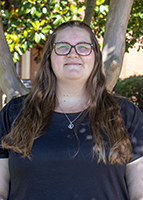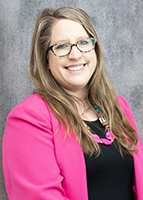The Surgical Technology curriculum prepares individuals to assist in the care of the surgical patient in the operating room and to function as a member of the surgical team.
Students will apply theoretical knowledge to the care of patients undergoing surgery and develop skills necessary to prepare supplies, equipment, and instruments; maintain aseptic conditions; prepare patients for surgery; and assist surgeons during operations.
Employment opportunities include labor/delivery/emergency departments, inpatient/outpatient surgery centers, dialysis units/facilities, physicians’ offices, and central supply processing units.
Students of Commission on Accreditation of Allied Health Education Programs (CAAHEP) accredited programs are required to take the national certification exam administered by the National Board on Certification in Surgical Technology and Surgical Assisting (NBSTSA) within a four week period prior to or after graduation. This test is given the last day of class of the Summer Semester.
Upon successful completion of this program, the student should be able to:
- Describe the various roles of the Surgical Technologist in the healthcare system.
- Identify the biopsychosocial needs of the surgical patient and perform the physical preparation and care of the surgical patient preoperatively, intraoperatively, and postoperatively.
- Identify hospital management and departments as they relate to direct and indirect patient care in the surgical suite.
- Define the ethical, moral, and legal responsibilities of the Surgical Technologist and other members of the health care team.
- Utilize medical terminology as it relates to surgical anatomy and procedures.
- Discuss microbiology, wound healing, types of incisions, and wound dressings as they apply to the surgical patient.
- Demonstrate application of principles of aseptic technique in all roles of the Surgical Technologist during a surgical procedure.
- Explain universal precautions and sterilization techniques as they apply to the operating room.
- Anticipate needs, including but not limited to: patient preparation, equipment, supplies, and instrumentation for surgical procedures.
- Demonstrate professional conduct with classmates, instructions, speakers in the classroom, and with the staff in the clinical setting.
A.A.S. in Surgical Technology (A45740)
Program of Study
| Fall Semester | |||
| ACA-111 | College Student Success | 1 | |
| BIO-168 | Anatomy and Physiology I | 4 | |
| SUR-110 | Intro to Surgical Tech | 3 | |
| SUR-111 | Periop Patient Care | 7 | |
| Spring Semester | |||
| BIO-169 | Anatomy & Physiology II | 4 | |
| SUR-122 | Surgical Procedures I | 6 | |
| SUR-123 | SUR Clinical Practice I | 7 | |
| Summer Semester | |||
| BIO-175 | General Microbiology | 3 | |
| SUR-134 | Surgical Procedures II | 5 | |
| SUR-135 | SUR Clinical Practice II | 4 | |
| Fall Semester | |||
| ENG-111 | Writing and Inquiry | 3 | |
| PSY-150 | General Psychology | 3 | |
| SUR-211 | Advanced Theoretical Concepts | 2 | |
| SUR-212 | SUR Clinical Supplement | 4 | |
| Spring Semester | |||
| COM-231 | Public Speaking | 3 | |
| SUR-137 | Prof Success Prep | 1 | |
| SUR-210 | Advanced SUR Clinical Practice | 2 | |
| ## | Humanities/Fine Arts Elective | 3 |
Wilson Community College’s Surgical Technology Program is accredited by the Commission on Accreditation of Allied Health Education Programs (CAAHEP) through the Accreditation Review Council on Education in Surgical Technology and Surgical Assisting (ARC/STSA).
Program Minimum Expectations Statement:
To prepare entry-level Surgical Technologists who are competent in the cognitive (knowledge), psychomotor (skills), and affective (behavior), learning domains to enter the profession.
For questions related to accreditation, students should contact:
Commission on Accreditation of Allied Health Education Programs
9355 113th St. N, #7709
Seminole, FL 33775
Phone: 727-210-2350
Fax: 727-210-2354
www.caahep.org
Accreditation Review Council on Education in Surgical Technology and Surgical Assisting (ARC-STSA)
19751 East Mainstreet, Suite #339
Parker, CO 80138
Phone: (303) 694-9262
Fax: (303) 741-3655
arcstsa.org
Program Outcome Data
Program Outcomes: Graduate Placement
Benchmark: 80%
| Year | Graduated | Working In Field | In Field and Continuing Education | Continuing Education | Percentage |
| 2023 | 3 | 3 | N/A | N/A | 100% |
| 2022 | 6 | 6 | N/A | N/A | 100% |
| 2021* | N/A | N/A | N/A | N/A | N/A |
Program Outcomes: CST Pass Rate
Benchmark: 70%
| Year | Graduates | Passed CST First Attempt | Percentage |
| 2024 | 5 | 5 | 100% |
| 2023 | 3 | 2 | 67% |
| 2022 | 6 | 2 | 33% |
| 2021* | N/A | N/A | N/A |
* In 2021 the Program transitioned to a 2-year Associate Degree in Applied Science starting in 2020. Therefore, there was not a graduating class in 2021.
Students who have already graduated with a diploma in Surgical Technology, but would like to apply for the Associate Degree please reach out to one of the contacts listed below.
Students of Commission on Accreditation of Allied Health Education Programs (CAAHEP) accredited programs are required to take the national certification exam administered by the National Board on Certification in Surgical Technology and Surgical Assisting (NBSTSA) within a four week period prior to or after graduation. This test is given the last day of class of the Summer Semester.
Out-of-state students seeking to enroll in a program or course leading to professional licensure or certification should contact Dr. Miranda Yelverton, Dean of Allied Health & Sciences to discuss enrollment and professional licensure options available. Students may view the Professional Licensure information page to learn more.

Program Coordinator - Surgical Technology
Department: Faculty
Phone: (252) 246-1323
Email: mwoodard@wilsoncc.edu
Office: G223

Dean of Health Sciences
Department: Faculty
Phone: (252) 246-1333
Email: myelverton@wilsoncc.edu
Office: G222a

